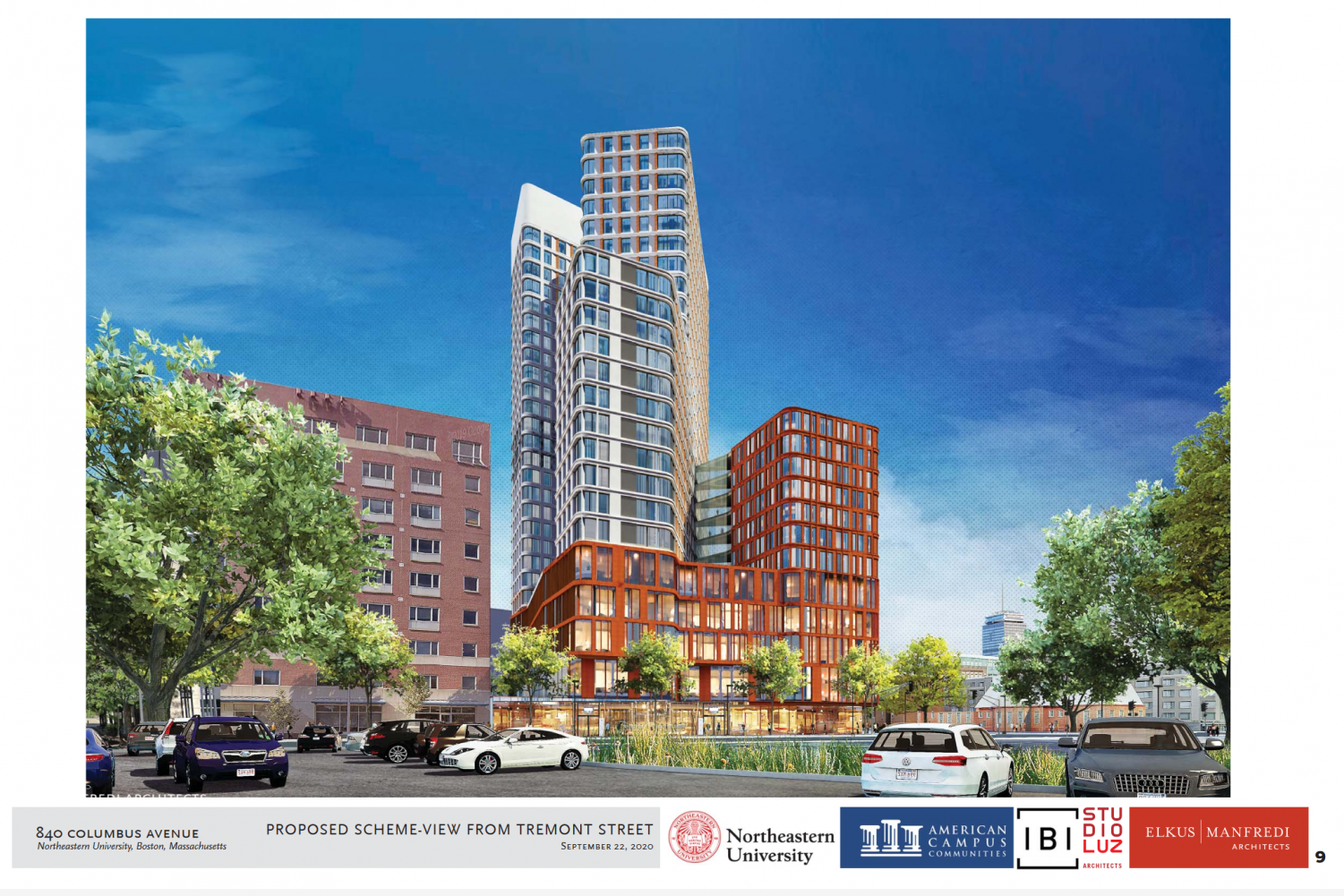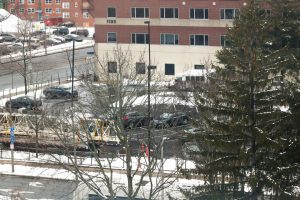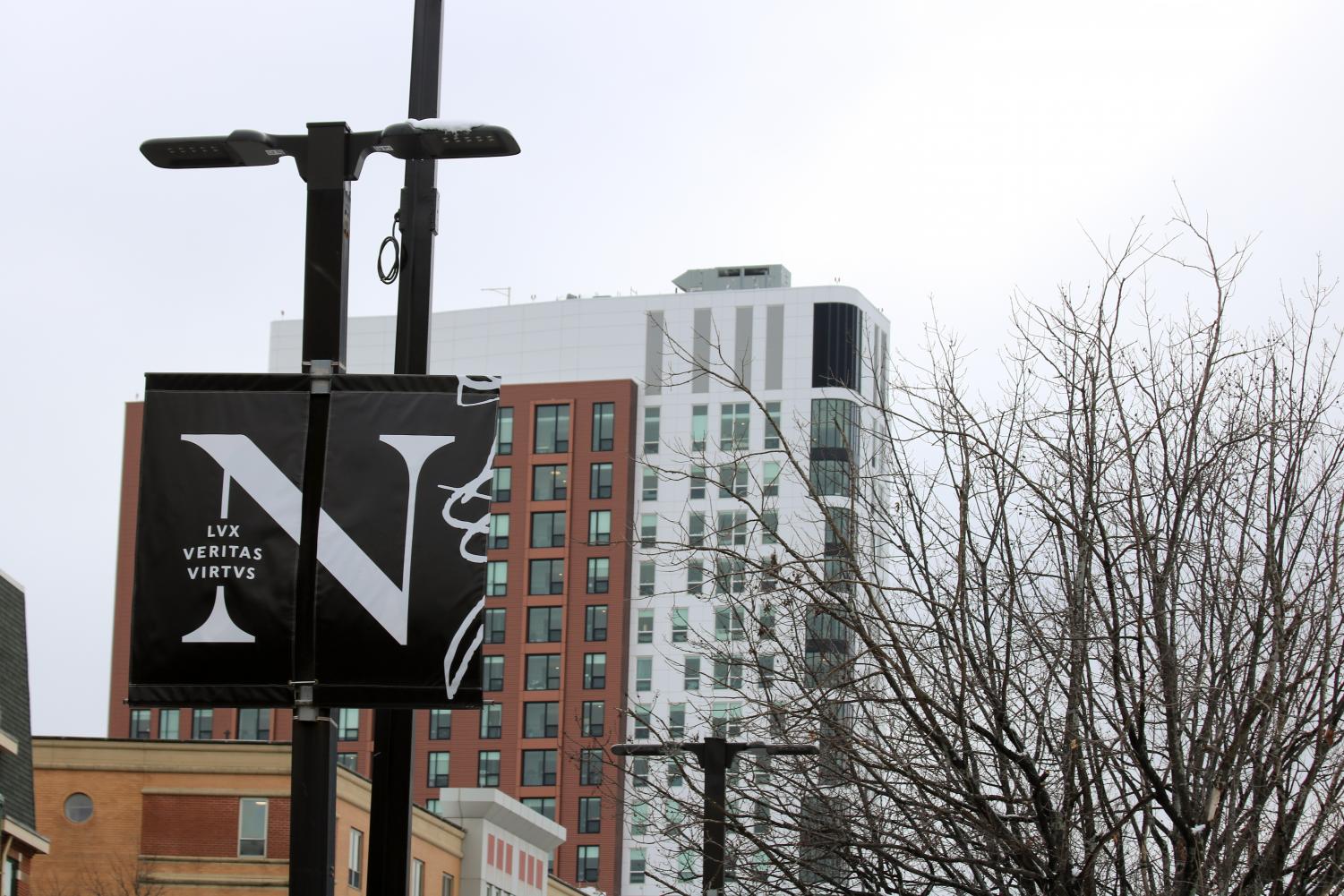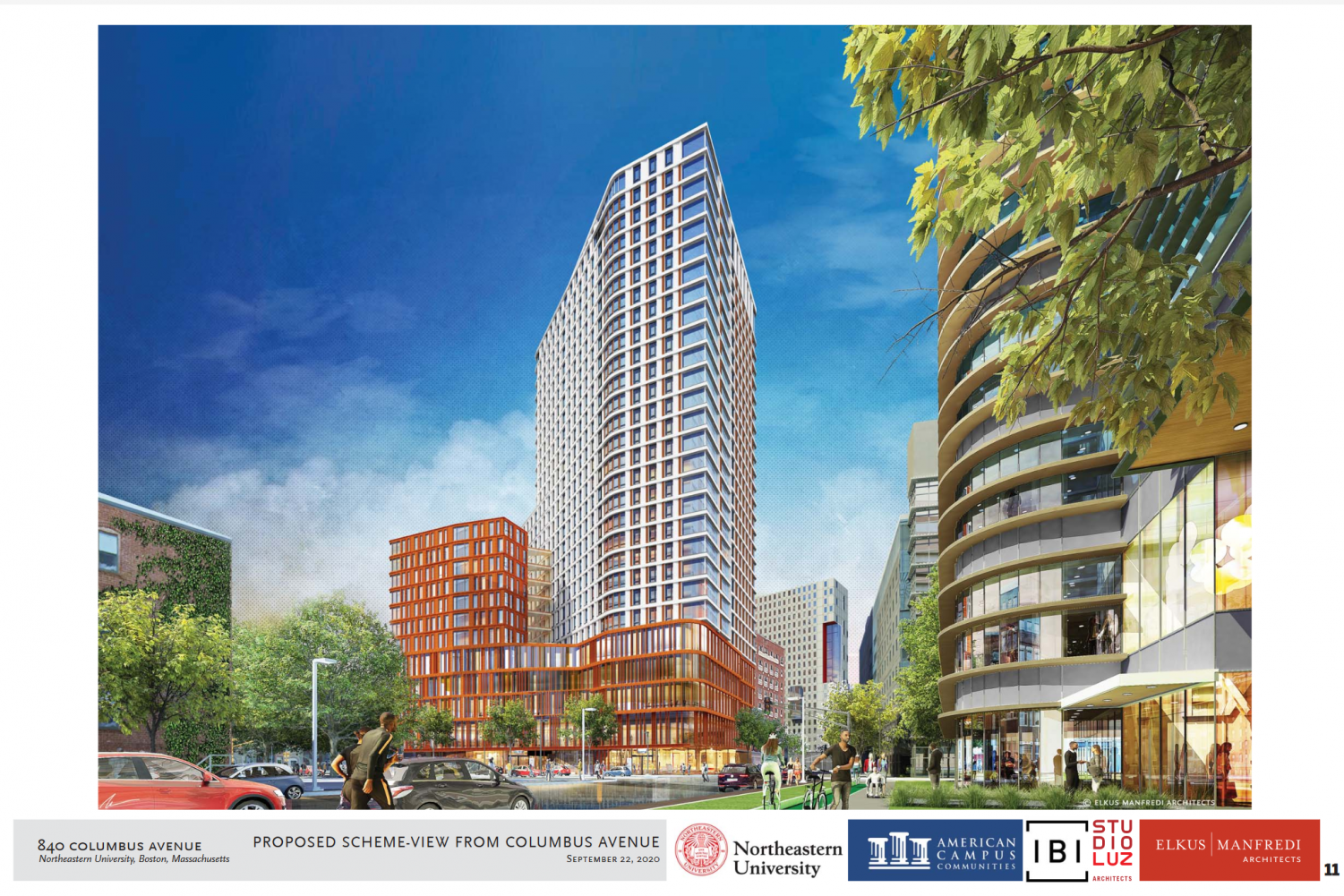Roxbury developers sue Northeastern over plans to build second LightView-style building
January 28, 2021
Northeastern University plans to construct a 26-story building at the corner of Columbus Avenue and Melnea Cass Boulevard. The land at 840 Columbus Ave. is currently a parking lot. Northeastern purchased it from the City of Boston in 1997. In court, it’s referred to as Parcel 18-1A.
Northeastern is being sued by Columbia Plaza Associates, or CPA, a group of Black and Latino investors and Roxbury-based non-profits, over this proposed construction. CPA is arguing that a 1980s deal with the city, which intended to spur economic growth in Black, Latino and Asian neighborhoods, still applies to the land today and would require Northeastern to work in partnership with its Roxbury neighbors. The lawsuit accuses Northeastern of “unjust enrichment” and “intentional interference with advantageous business relations.”

Northeastern spokesperson Marirose Sartoretto issued an email statement Jan. 9 in response to the lawsuit’s claims.
“The current complaint by Columbia Plaza Associates seeks to revisit issues that were fully litigated years ago, resulting in a series of court rulings and a final judgment in Northeastern’s favor, all of which were upheld on appeal,” the statement read. “The current claims, like the earlier claims, have no merit and we are confident they will be dismissed.”
Henry Owens, the attorney for CPA, said he’s tried to resolve the matter out of court for over a year.
“There is a quite extensive paper trail of us trying to get this matter resolved without litigation, but we have gotten nowhere. That’s why we had to file a lawsuit,” he said. “Part of it is we’re talking about Black people, we’re talking about the minority community, the least powerful group of people in the entire city. So yes, this is a racial issue. Whether they want to admit it or not, it’s there.”
The deal behind Parcel 18
The legal question dates back to 1986, when Boston created the Parcel to Parcel Linkage Program. Real estate development was booming in wealthy downtown neighborhoods, but few were looking to invest in Roxbury, a lower-income, historically Black neighborhood that faced redlining and disinvestment. The city decided to try a new policy: parcels of land downtown would be linked to parcels of land in Roxbury. If a developer wanted to build downtown, they had to buy both plots of land and commit to also building in Roxbury — in this case, Parcel 18. Investors would also be required to partner with a group of local Black, Latino and Asian investors — CPA — to encourage racial equity.
Race was a central, explicit part of the project. There were political motivations for this. Boston’s Black community felt neglected by the city. The Roxbury secession movement was growing. That year, there was a nonbinding ballot initiative for Roxbury, Mattapan, Dorchester and other neighborhoods to break away from Boston and create a new city: Mandela, Massachusetts. If this had come to pass, Mandela would have broken off a quarter of Boston’s land and 98% of its Black residents. News stories from the time describe the Parcel to Parcel program as a sort of peace offering from Boston to Roxbury.

CPA argues that three decades later, the city’s promises to Roxbury never materialized. The downtown land linked to Parcel 18 is now the State Street building in the financial district. But the land in Roxbury held a Registry of Motor Vehicles and then went through foreclosure in the 1990s. Northeastern, a predominantly white institution, bought the property in 1997 and has continued to build outwards, first with Renaissance Park Garage and then with International Village.
“They take up valuable space that could be developed by private developers, where people can work and get economic opportunities,” said CPA President John Cruz, who owns a Roxbury-based construction company. “That would have been available for people like me, and other people of color, to develop those lands in Roxbury.”
CPA also sued Northeastern in 2016 to be recognized as a joint development partner on International Village, but lost when the judge decided a 1999 agreement between CPA and Northeastern was not valid, and that CPA had waited too long to file suit.
Court documents state CPA intended to develop a hotel on the site where Northeastern now plans to build the new leased apartments.
“The whole history and backbone of the linkage program was to revitalize the Black community: jobs, housing, healthcare, daycare, et cetera. Right now, on paper, the only one who has benefited by the linkage program is Northeastern University,” Owens said. “These high rise dormitories, they don’t help Black people … They’re not going to be in these dormitories.”
CPA is not the only opponent to the 840 Columbus Ave. proposal.
City Council President Kim Janey, who is set to become mayor if Mayor Marty Walsh joins President Joe Biden’s administration, filed a public comment in December 2019 opposing Northeastern’s plan.
“[F]or those living in Northeastern’s shadow the benefits they claim to bring to the community go unseen,” she wrote. “[T]he University has consistently fallen short on its promises to be a strong community partner.”
NU for the Common Good, a coalition of students, alumni and nearby community residents, also submitted a public comment in January 2020 opposing the construction.
“As a student at Northeastern, we have a responsibility to hold Northeastern accountable to be a better community member,” said Danielle Bettio, a fifth-year cultural anthropology major. She signed on to NU for the Common Good’s comment last year. “I think that a lot of students would like [NU] to support community members first, and local people. The rent is just getting too high.”
The Northeastern Task Force for the 840 Columbus Ave. proposal is having a public meeting with the BPDA Jan. 28 at 6 p.m. on Zoom.
Relocating student housing from Fenway
Documents submitted Nov. 12, 2019 by university officials to the Boston Planning and Development Agency state the new apartment building would add 975 bedspaces. However, this would only be a net gain of about 175 beds: The proposal also states Northeastern plans to phase out approximately 800 bedspaces from older leased properties and university-owned residence halls.
BPDA’s review of the project suggests these bedspaces would be removed from the Fenway area.

After The News asked which residence halls or leased properties would be phased out by the university, Northeastern spokesperson Marirose Sartoretto responded in a Jan. 26 email statement, “Completely untrue. We are not reducing the need for leases.”
Some residents and community organizations have expressed support for building more on-campus housing as a way to stem the flow of students into the general rental market. City government has also supported increased student housing to alleviate housing demand in nearby neighborhoods, as outlined in the Boston 2030 plan.
If Northeastern did eliminate older student housing options after 840 Columbus Ave. is completed, and the new prices were similar to those in LightView, it may mean replacing less expensive student housing options with more expensive leases. This year, a double bed in an economy price apartment — a tier that includes many of the Fenway properties — costs $4,615 per semester, or about $1,154 per month. The least expensive bedspace in LightView costs $1,374 per month.
“It’ll only contribute to gentrification, and only benefit more affluent students who can pay $6,000 a month for a four-bedroom apartment,” Bettio said. “It’s not really going to keep students on campus.”

